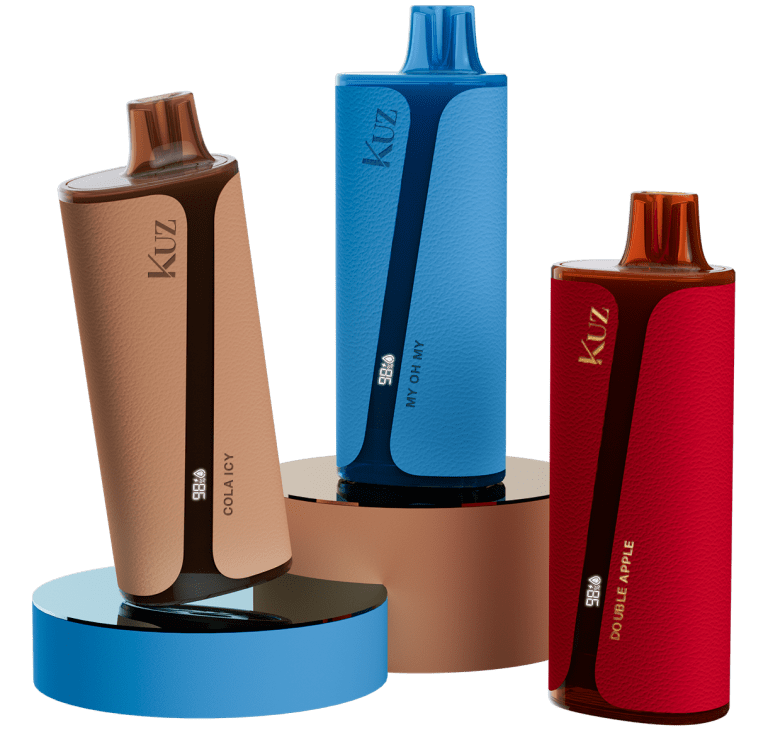Vaping, often seen as a safer alternative to smoking, has quickly gained popularity, particularly among those seeking to reduce their tobacco intake. However, while it might seem less harmful than traditional cigarettes, vaping poses significant risks to your oral health. This article delves into how vaping can negatively impact your teeth and gums, and offers practical advice on how to protect your smile.
The Impact of Vaping on Oral Health
Tooth Discoloration and Staining
Nicotine is notorious for staining teeth, turning them yellow or brown over time. Although vapes typically contain less nicotine than traditional cigarettes, they still have the potential to discolor your teeth. The porous nature of enamel allows nicotine particles from e-cigarettes to be absorbed quickly, leading to unsightly stains. Even if you opt for nicotine-free vapes, the flavoring agents in e-liquids can also contribute to tooth discoloration by promoting the formation of dental plaque, which can trap stains on your teeth.
Enamel Erosion
One of the less visible but more concerning effects of vaping is the erosion of tooth enamel. Many e-liquids contain acidic flavorings and ingredients like vegetable glycerin and propylene glycol, which can weaken the enamel over time. Enamel erosion is particularly dangerous because it makes your teeth more susceptible to cavities and decay. Once the enamel wears away, it cannot be restored, leading to permanent damage.
Dry Mouth and Bad Breath
Vaping can cause dry mouth, a condition where saliva production is reduced. Saliva is essential for maintaining oral health as it helps wash away food particles and neutralize acids in the mouth. Without adequate saliva, your mouth becomes a breeding ground for bacteria, leading to bad breath, increased plaque buildup, and a higher risk of tooth decay and gum disease.
Gum Disease and Periodontal Issues
Nicotine from vaping can reduce blood flow to the gums, impairing the body’s ability to fight off infection and heal properly. This can lead to gum inflammation, receding gums, and even periodontitis, a severe form of gum disease that can cause tooth loss. Additionally, the chemicals in e-cigarettes can disrupt the oral microbiome, further increasing the risk of gum disease and other oral health issues.
Bruxism and Tooth Damage
Vaping, especially when using nicotine, can also contribute to bruxism, or teeth grinding. Nicotine is a stimulant that can cause your jaw muscles to contract, leading to involuntary grinding of your teeth, particularly at night. Over time, bruxism can wear down your teeth, causing chips, cracks, and even tooth loss if not managed properly.
Mitigating the Risks: How to Protect Your Teeth if You Vape
If you choose to vape, it’s crucial to take steps to protect your oral health. Here are some tips to minimize the damage:
- Stay Hydrated: Drinking plenty of water helps combat dry mouth and wash away harmful bacteria and acids.
- Maintain Good Oral Hygiene: Brush your teeth at least twice a day with fluoride toothpaste, floss daily, and consider using an antibacterial mouthwash.
- Regular Dental Checkups: Visit your dentist regularly for cleanings and checkups. They can help identify any early signs of damage and provide treatment before issues worsen.
- Consider Quitting: The best way to protect your teeth from the harmful effects of vaping is to quit. If you need help, there are many resources available to support you in quitting vaping.
Conclusion
While vaping may be less harmful than smoking traditional cigarettes, it is by no means safe for your oral health. The risks of tooth discoloration, enamel erosion, dry mouth, gum disease, and bruxism are all serious concerns that can lead to long-term damage if not addressed. By staying informed and taking proactive steps to care for your teeth and gums, you can help mitigate these risks. However, the best way to protect your smile is to consider quitting vaping altogether.



